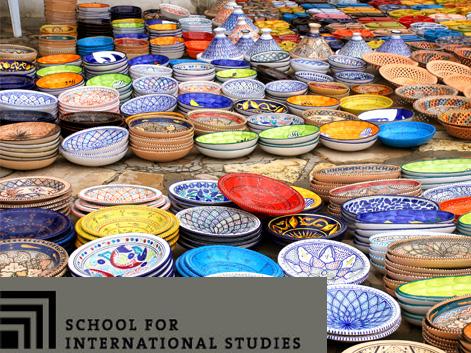
Competition is always fierce when finding a job, particularly for new grads trying to find their first position. Jan Bérubé, Manager of Academic and Administrative Services for the School for International Studies, provides some advice to students within International Studies about how to market themselves, and how to get the most out of their time at SFU.
SFU’s School for International Studies: New Perspectives in International Relations
Conventionally, International Relations programs (traditionally defined as the study of foreign affairs and global issues among states within the international system, focusing on academic and public policy streams) have been offered at most universities but International Studies has emerged in recent years to approach the international realm from a different angle. Jan explains, “International Relations takes a political and governmental aspect, while International Studies is interdisciplinary.” International Studies can be broad, analyzing the world from a sociological or anthropological aspect, and pulling in a range of disciplines from history, to economics, to political science.
The International Studies program at SFU offers students three streams to focus their academic studies. They include International Security and Conflict; Comparative World Politics, Culture and Society; and International Development, Economic and Environmental Issues.
Since International Studies is a fairly new program of study worldwide, students need to be able to properly market their academic background to employers, who may not know much about the field. When applying for a job, students can use their specialization to appeal to employers and differentiate themselves from other applicants. For example, the International Security and Conflict stream prepares students for positions dealing with security of persons and states, conflict resolution, and humanitarian work.
International Experience is Important
Most students who earn an International Studies degree “want to work with NGO’s, aid organizations, international organizations, in diplomacy, or in embassies.” But through studies and other experiences, students can become prepared for a diversity of positions outside this realm if they choose, says Jan, “International studies can trickle down to many different things.”
One of the greatest components of the International Studies degree for students upon graduation is the international experience they get through the required international work or study component of the undergraduate degree program. “If you’re applying for a job these days, any form of something that sets you apart, something that makes you unique, and makes you more competitive as an applicant,” is essential says Jan,“ especially in International Studies, without having international exposure, it’s harder to find jobs.”
Many employers are interested in applicants with international experience. Graduates with international experience are at a greater advantage when applying to international organizations or for positions outside of Canada. Employers want to know that their employees are well-rounded and will be prepared for the culture shock and extreme differences of living and working in another country, particularly developing countries. “While you’re in school, it’s a great opportunity,” says Jan. You can accomplish two feats at once while studying or working abroad by contributing to your degree and gaining international experience at the same time.
For students in International Studies, the option of a Co-operative Education work term abroad through the International Co-op office is a great way to get the international experience employers are looking for as well as build valuable on-the-job skills that can transfer to many other positions, whether they are local or international, after graduation. Amongst many of the opportunities available for students, some of the international positions posted in Spring 2009 that might interest IS students are: internships at the Canadian Embassy in Washington DC, World University Service of Canada Students Without Borders program, and internships at the Inter American Development Bank.
On-Campus Opportunities
Students hoping to create a strong resume can contribute in other ways during their time at SFU. “Students need to look outside of academic studies,” says Jan. They can join “the International Studies student association and attend presentations, talks or series’ through the International Studies department.” Information and insights gained from the presentations, talks or series’ can be used to add to a cover letter, or as a reference point during and interview. Attending special events through the International Studies department or through SFU Career Services’ information session series that hosts employers on campus is also a great way to network and create pathways for future job opportunities.
Beyond the Blog
-
Interested in participating in the International Co-op program? Find out more on their website.















